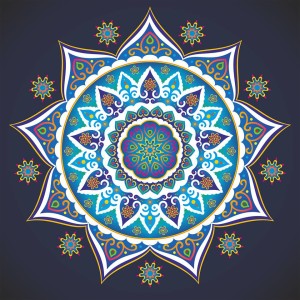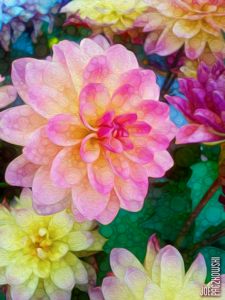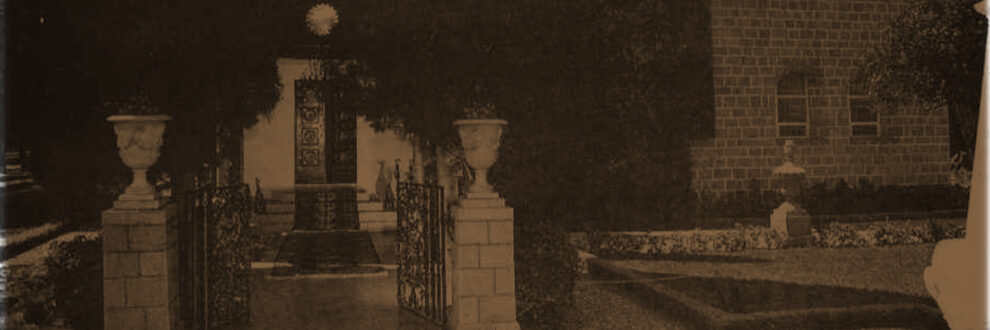 Haji Mirza Musay-i-Javahari
Haji Mirza Musay-i-Javahari
Born: Unknown
Death: 1881
Place of Birth: Unknown
Location of Death: Unknown
Burial Location: No cemetery details
Haji Mirza Musay-i-Javahiri was entitled the Harf-i-Baqa (Letter of Eternity). His father, Haji Mirza Hadi was a Persian vazir (a nobleman) and highly revered. He was a man of great wealth and influence and moved to Baghdad. Towards the latter part of his life he became attracted to Ghusnu’lláhu’l-Athar (the Purest Branch – Mirza Mihdi, the son of Bahá’u’lláh) and became a Bahá’í. Despite his wealth and position he would often enter Ghusnu’lláhu’l-Athar’s presence and sit at His feet in humility and self-effacement.
Haji Mirza Musay-i-Javahiri provided the house in which Ghusnu’lláhu’l-Athar lived in Baghdad. Actually there’s more to it which is important to mention. After Haji Mirza Musay-i-Javahari died in 1881, his son, Haji Mirza Musa inherited a portion of the estate. He owned the house where Ghusnu’lláhu’l-Athar lived and was extremely happy to present it to Him as a gift. However, Ghusnu’lláhu’l-Athar refused and due to Haji Mirza Musa’s continuous pleas, Ghusnu’lláhu’l-Athar only then gave instructions that the house be purchased from him at a fair price. As a result this house became a property of the Faith. This building called the House of God or Most Great House which was to be a site for pilgrimage was sadly destroyed in June 2013. The precise circumstances surrounding the demolition are not yet clear.
In some of His Tablets, Ghusnu’lláhu’l-Athar has extolled the holiness and glory of this sacred spot, has foretold its fate and the abasement to which it would be subjected, and has prophesied its ultimate exaltation and grandeur in days to come. In one Tablet Bahá’u’lláh has revealed the following:
“Grieve not, O House of God, if the veil of thy sanctity be rent asunder by the infidels. God hath, in the world of creation, adorned thee with the jewel of His remembrance. Such an ornament no man can, at any time, profane. Towards thee the eyes of thy Lord shall, under all conditions, remain directed…In the fullness of time the Lord shall, by the power of truth, exalt it in the eyes of all men. He shall cause it to become the Standard of His Kingdom, the Shrine round which will circle the concourse of the faithful.”
Bahá’u’lláh opens the Tablet of Subhána-Rabbíya’l-A’lá (Praise to the Exalted Lord) with words of encouragement to Mírzá Músá, the Harf-i-Baqá, calling on him to detach himself from this world and everything in it, to enable him to soar in the realms of spirit and partake of the melodies of the Kingdom.
 He portrays in dramatic terms the appearance before Him of the ‘Maid of Heaven’, personifying the ‘Most Great Spirit’, and alludes to His own Revelation in such terms as no pen can describe. The whole Tablet conveys in symbolic language the joyous tidings of the advent of the Day of God, at the same time warning the faithful to beware of tests which will befall them, causing many to be deprived of attaining to His glory and grace.
He portrays in dramatic terms the appearance before Him of the ‘Maid of Heaven’, personifying the ‘Most Great Spirit’, and alludes to His own Revelation in such terms as no pen can describe. The whole Tablet conveys in symbolic language the joyous tidings of the advent of the Day of God, at the same time warning the faithful to beware of tests which will befall them, causing many to be deprived of attaining to His glory and grace.
This Tablet is written in allusive language. To understand it the believer must turn to Bahá’u’lláh and meditate upon His words. Only in this way can his heart receive Bahá’u’lláh’s unfailing grace and realize the significance of His utterances.
Source:
“Bahá’u’lláh’s Approaching Declaration” peyman.info: The Covenant Library
Images:
Art Designs by Joe Paczkowski




